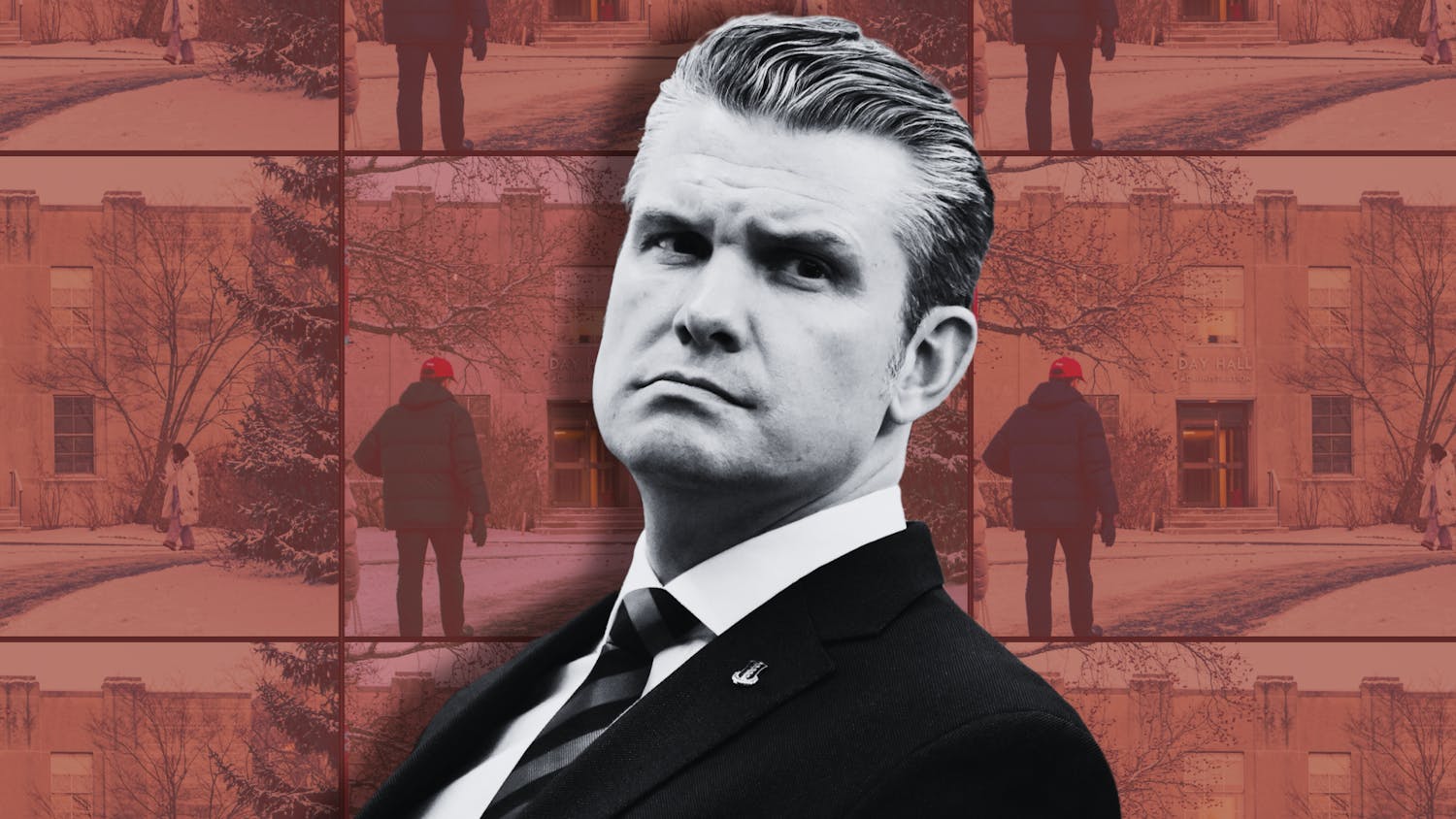Prof. Robert Summers, the William G. McRoberts Research Professor Emeritus in Administration of the Law, died on March 1 in Canaan, Conn. He was 85.
The prolific author of 55 books and over 100 articles was perhaps best known as the co-author of the Uniform Commercial Code. Summers taught at Cornell for 42 years before his retirement in 2010.
Summers — an internationally renowned scholar and citizen of the law school outside of the classroom — also advised the Drafting Commissions for the Russian and Egyptian Civil Codes, co-drafted a new code of contract law for Rwanda and spoke at countless lectures globally, according to his curriculum vitae.
Summers was born on Sep. 19, 1933, in Baker County, Oregon, according to his faculty biography. Despite limited early schooling, he had a rich education on his family’s 80-acre farm, learning the value of hard work — while also milking cows.
“I’m the only American law professor with genuine cow milking muscles,” Summers said in a 2010 interview with the Cornell Chronicle, a University-run publication.
Summers was valedictorian of his high school class of 24 students before attending the University of Oregon. After college, he was a Fulbright Scholar at Southampton University, before he went on to earn an LL.B. degree from Harvard University in 1959. There, he developed passions for both the philosophy of law and contract law.
Summers would go on to co-write the Uniform Commercial Code with Prof. James White, law, University of Michigan, which has been adopted by all 50 state legislatures. Its four volumes make up the most widely cited treatise on the rules that govern the sale of goods and other commercial transactions across the country.
“[It] is the bible for lawyers and students interested in the area,” Prof. Robert Hillman, law, who worked on the code’s sixth edition with Summers, told The Sun in an email.
Hillman was first Summer’s student and research assistant before becoming his colleague and close friend. Hillman said their close relationship was representative of how Summers interacted with his students over his 50 years of teaching.
“He has written almost too many books and articles to count … each making substantial contributions to legal analysis,” Hillman said. “No one worked harder than Bob, who had unlimited energy and zeal for each project he entertained.”
As a professor, Summers often invited students and colleagues to dinner parties at his home with his wife of 63 years, Dorothy. He was known to entertain with lively conversation about his own passions and the passions of his guests.
“Bob and Dorothy always made everyone feel at home,” Hillman said.
In class, Summers was one of the few left to use the traditional Socratic method, said Prof. Faust F. Rossi, the Samuel S. Leibowitz Professor of Trial Techniques, in an interview when Summers retired. Through the cooperative and argumentative dialogue of the method, Summers asked students to draw out ideas and presuppositions. He was dedicated to giving students authority over their knowledge, instilling principles and concepts through the rigorous questioning.
“Professor Summer’s committed use of the Socratic method in teaching law earned him a reputation as an old-school terror of sorts,” M. Todd Sullivan J.D. ’94, who was Summer’s research assistant for three years, told The Sun in an email.
“Generations of Cornell alumni know that Bob loved the Socratic Method and was a demanding, sometimes, at first, frightening teacher,” Hillman said. “By the end of the semester, students realized that Bob’s style was in their great interest as they mastered the subjects of contracts and commercial law.”
Summers’ students came to know him as a caring teacher and mentor, who challenged them and cared about their successes — in and out of their legal studies.
“He was a rare bird — a committed scholar and researcher while also being a dedicated teacher,” Sullivan said. “I watched him laboriously prepare long-hand notes and outlines on yellow legal pads in preparation for a one-hour class he had taught perhaps fifty times before. He saw that preparation as a solemn duty, to the students and to the law.”
Summers’ dedication to his students was also present in his public service. In 1969, he co-founded the Council on Legal Education Opportunity program, which is dedicated to increasing representation of minority and low-income students in law schools.
“He was a true professor in every positive meaning of that term,” Sullivan said. “And he was a great one because he cared deeply and intensely not only about what he was teaching but also about who he was teaching. He changed and improved not only the law, but also those he taught.”
Summers is survived by his wife, five children and 14 grandchildren.











